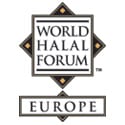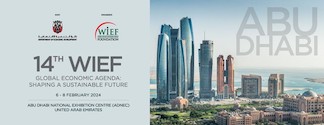 In the run up to the World Halal Forum Europe, being held in London at the Earls Court Conference Centre on 10-11 November 2010, HalalFocus talks to Abdalhamid Evans, the WHF Europe Project Director
In the run up to the World Halal Forum Europe, being held in London at the Earls Court Conference Centre on 10-11 November 2010, HalalFocus talks to Abdalhamid Evans, the WHF Europe Project Director
HF – Can you give us some background on the World Halal Forum?
AH – The WHF was first started in 2006 in Malaysia, and it was really a matter of being in the right place at the right time. The then-Prime Minister Abdullah Badawi had made Halal part of the development programme for Malaysia, so there was a good political climate for this. Up to that point, there had been no reference to the ‘Halal industry’ per se, so this really was a ground-breaking event, in that it brought together major multi-nationals in the food sector, like Tesco, McDonalds and Nestlé, senior government officers, Islamic bodies, scientists, lots of media…it created a real buzz at that time.
HF – And was it just buzz, or was there any tangible outcome?
AH – There were some interesting outcomes. I would say that there were two kinds: firstly, some people were really affected and changed by attending the WHF, and really gained a renewed commitment to the cause of Halal. People’s horizons were expanded by that event. Secondly, there was the resolution calling for an international body to be formed to create Halal standards; this resulted in the formation, over the next couple of years, of the International Halal Integrity Alliance. The IHI Alliance has taken this task very seriously, and has quietly made significant progress on it, and is developing standards that are ISO 45011 compliant. This is really an achievement
HF – So why hold the WHF in London?
AH – Well, of course the European Halal market is sizeable…and also full of inefficiencies and problems. It’s an unformed, evolving, unregulated market, so it is full of grey areas at this stage. But it is vibrant and growing, and it really makes sense for the WHF to play a role in the developing Halal markets of the western world. The Muslim-minority countries are really at the cutting edge of the expanding Halal marketplace, and I really believe that the next wave of advancements and initiatives that will have a ripple effect throughout the global markets will come from the West.
HF – Why is that? Surely the Muslim countries are leading this market?
AH – Well, no not really. The Muslim heartland has been very slow to recognise the significance of the Halal movement. Either they are undeveloped countries just struggling to get by, or they are wealthy, oil-rich countries that take the view that Halal is not really an issue for them, not a financially important issue, not a business issue. It is where the Muslim and non-Muslim worlds really interact that Halal becomes an important matter. The Halal market place is already a multi-cultural phenomenon. All over the world now, non-Muslim food producers are making Halal food for the Muslim consumers…and this is also what has given rise to many of the problems we are facing now in the West.
HF – In what way?
AH – So far, the development of the Halal sector has been based on adapting an existing process to accommodate the Halal consumer. Understandably, this has been on the basis of changing as little as possible to get the product to market, to the Halal consumers. So there has been compromise built in from the start. To my knowledge, no one has really designed a Halal slaughter line from the drawing board, incorporating the best animal welfare and handling initiatives (such as Temple Grandin’s innovations) and really created a purpose-built Halal line. And without clear Halal standards and guidelines, this is not going to happen.
And the same with the audit and certification procedures. They have been adopted step by step with all kinds of differing views and positions and business models. The gap between the old-model Halal certification procedures and the current health and safety standards for the food industry is way too big. You have instances of a one-man certifier carrying out audits on multi-million pound operations without any clear standards or auditing procedures…and this is not just necessarily a question of integrity, there are many good people involved in this…rather, it is such an imbalance that you know it cannot continue. It is going to change, for so many reasons. It is inevitable.
HF – So what sort of changes do you see coming?
I foresee three major changes coming in the immediate future: Clear and transparent Halal standards; full disclosure labelling; and new Halal accreditation bodies. These three initiatives will go a very long way towards sorting out a lot of the confusion, mistrust and duplicity that is currently prevalent.
And of these three, I see the creation of national Halal accreditation bodies as the most significant development. I see this as being difficult, but inevitable, especially in Muslim-minority countries where there is no clear Islamic authority. In many ways, this is the real issue, the lack of leadership. This is a real opportunity to bridge ideological, cultural or madhab-related differences in order to actually DO something that affects everyone. It is a real chance to do something for the broader common good of our western societies, because businesses, government, and the consuming public…everyone would benefit from this.
HF – Has this been done successfully anywhere?
Australia has a good working model whereby the industry, the government bodies and the Islamic agencies worked together to make the Halal industry efficient; it took time and sweat, but I think they have done a good job. New Zealand has recently legislated that Halal certification bodies have to be approved by the national accreditation body – and they have to be ISO-compliant also, so that is a major change, and it sets the bar pretty high also. The Philippines are working towards accreditation and there is also a move in the USA to implement a national Halal accreditation body.
HF – How is the US initiative going?
AH – It has come about after nearly two years of discussion and deliberation between ISNA (the Islamic Society of North America) and the AHA (American Halal Association), and I believe it is fair to say that this initiative actually has its roots in the first World Halal Forum in Kuala Lumpur in 2006 where the question of global standards first arose as a serious issue.
At the ISNA Annual Convention in July this year, Safaa Zarzour, the new Secretary General, announced ISNA’s intention to spearhead the Halal accreditation project. Of course, ISNA cannot do this alone, they will need plenty of help and support, but I feel that it is important that ISNA, as the oldest and broadest Islamic body in the USA takes the lead, and if they do it in a fair-handed manner, it is important that they get the support from all sides.
There are similar discussions taking place in the UK right now, and I believe that there may well be an announcement at the World Halal Forum Europe in London on November 10-11 2010 that will launch a UK initiative for a central Halal accreditation body.
Again, this cannot be done by a single group or body…but someone has to start and take the lead, and as long as there is an inclusive approach, I really hope that people will support this kind of move and not oppose it. We have to get involved and not just throw up our hands and walk away because we may not agree 100% on all the points. After all, we can all agree about so many things, lets make this another one of them!
HF – So, you see Halal accreditation bodies as being the key?
AH – Yes, I do. A national central body can – with the right help and support in terms of finance and expertise – develop clear definitions for Halal. This is an unavoidable step; without clear definitions, the whole affair is, by default, unclear! And therefore the integrity of the whole market is inevitably a huge grey area…and this cannot go on. An accreditation body can develop and hold the standard, give guidelines as to how audits should be conducted and certificates issued so that there are no conflicts of interest. And it must monitor this process, work with government agencies on health and safety issues, work with industry, and also the consumer groups and Islamic communities and thereby ensure that products are clearly labelled and the consumers know what they are buying and eating
HF – This is clearly a long-term project, it cannot happen overnight at the WHF…
AH – Correct. This will take years, but it has to start somewhere, and it seems appropriate that the people who are involved should take a lead in their own country. We are already seeing networks of concerned professionals with integrity and taqwa emerging in the Halal sector. These networks can be strengthened and where appropriate formalised to create these new bodies that are needed. It is really just a matter of staying on track, keeping a clear intention, and going forward step by step.
I sincerely believe that the WHF can be a platform and a catalyst for change. When people come together wanting a good outcome, there is every chance of actually having a good outcome. This is really the bottom line for us, and this is what we hope to see in November in London.
HF – Thank you, and we wish you and all the participants every success!



